The Year of the Youth
Over the last year, we’ve seen an extraordinary surge in student organizing around LGBTQ rights, climate change, labor, Palestine, and more.
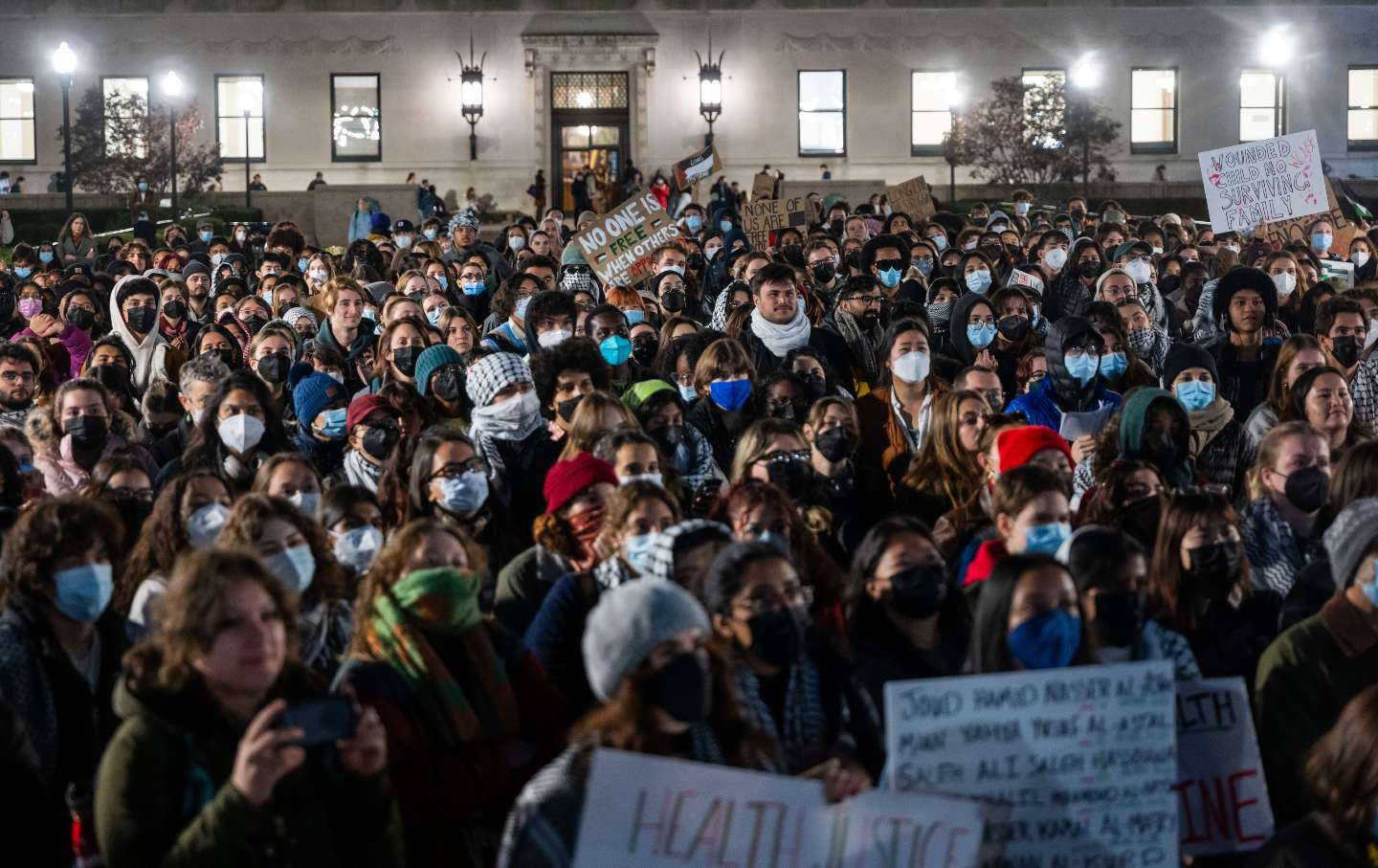
Students participate in a protest in support of Palestine and for free speech on the Columbia University campus on November 14, 2023.
(Spencer Platt / Getty)In 2023, StudentNation published around 100 original articles by student journalists reporting on youth-oriented movements and issues across the country. Over the last year, we’ve seen an extraordinary surge in student organizing around LGBTQ rights, climate change, labor, Palestine, and more. With great difficulty, we’ve selected 16 of the year’s best articles to highlight the extraordinary writing and reporting of the next generation of writers. We’re deeply grateful to the Puffin Foundation whose great generosity to The Nation Fund for Independent Journalism made this work possible.
“With Abortion Rights Under Attack, Menstrual Equity Gains Support,” by Thalia Charles (February 7)
This year saw a landmark moment for menstrual equity, according to Thalia Charles, who highlighted the work of the Texas Menstrual Equity Coalition, a youth-led collective advocating for systemic solutions to menstrual inequities. “In January alone, lawmakers in two dozen states introduced around 100 menstrual equity bills.”
“Inside the Youth Campaign to Bring Climate Change to the World’s Highest Court,” by Robin Happel (April 26)
On March 29, the UN voted to request a consequential opinion on climate change from the International Court of Justice, after years of youth organizing by Pacific Islands Students Fighting Climate Change. “The court’s opinion and the future we create together remain to be fully heard. And until then, we will continue working to ensure that everyone has a seat at the table.”
“Why Are So Many Young People Joining Labor Unions?,” by Paige Oamek (May 1)
A growing number of young people are joining and forming labor unions. Some call them “Generation U.” The New York Times dubbed the phenomenon the “Revolt of the College-Educated Working Class.” For May Day, we talked to young workers—in tech, retail, food service, and more—about what brought them to the labor movement.
“How Scientific Publishers’ Extreme Fees Put Profit Over Progress,” by Kayla Yup (May 31 )
After the editorial team of NeuroImage resigned over the “unethical fees” charged by the journal’s publisher, Puffin student writing fellow Kayla Yup talked to these editors about the possibility of scientists ditching the for-profit system. “As the academic publishing industry balloons into a $25 billion business, its monopolization may threaten how far public money can go toward funding scientific breakthroughs.”
“How WWII-Era Radioactive Waste Fueled A New Crisis at a Missouri Elementary School,” by Walter Thomas-Patterson (July 10 )
In October 2022, the Hazelwood School District announced that Jana Elementary in Florissant, Mo., would close indefinitely, after an independent contractor reported elevated levels of radioactive lead dust on school grounds. It was only the latest blow to an area long-saddled with a slow-moving and notoriously complex environmental disaster. But competing reports left Florissant mired in confusion. “What are we supposed to do as a community?”
“The Catholic Women Priests Fighting for Reproductive Justice,” by Molly Morrow (August 8)
While the Catholic church forbids women to become priests, members of Roman Catholic Women Priests–USA believes that they are aptly situated to minister on abortion and offer a new, progressive stance.“Faith communities have always been essential to political change. And I think the secular pro-choice movement has made a terrible mistake marginalizing those voices.”
“Kentucky’s Anti-LGBTQ “Parental Rights” Law Is a Disaster for Families, Teachers, and Kids,” by Nadia Scharf (August 11)
After Kentucky Senate Bill 150 passed the House and the Senate, the state moved to ban gender-affirming care for trans minors, require students to use the bathroom that aligns with their gender at birth, recommend that teachers use incorrect pronouns, and limit education. “Despite the strong opposition of every major medical and mental health association, the new law prohibits parents, healthcare professionals, teachers, and clergy from working together to lovingly and privately provide support to transgender youth.”
“Held v. Montana Is a Historic Victory for Climate Action—but Also Human Rights,” by Meher Bhatia (August 16)
On August 14, a Montana state court ruled in favor of the 16 youth plaintiffs who sued the state for anti-climate policies they argued were unconstitutional, violating their explicit right to a “clean and healthful environment.” Invoking this right will likely become a replicable strategy for climate lawsuits across the country. “The hope is that, within the next few years, instead of fighting to get access to our courts, we’re going to be enforcing remedies and holding the governments accountable to implement policies that actually protect these young people’s constitutional rights.”
Popular
“swipe left below to view more authors”Swipe →“The Queer Progressives Helping to Pull Louisiana to the Left,” by Kennith Woods (August 31)
The Pelican State might have a dearth of left-leaning political figures in office, but that didn’t stop Davante Lewis and Mel Manuel from fighting for LGBTQ advocacy and economic justice in the state’s first congressional seat, currently occupied by Republican House leader Steve Scalise. “Individual LGBTQ leaders are playing a critical role right now, especially in very conservative states/cities. Our fight is for both visibility and representation and you can’t have one without the other.”
“When the Ku Klux Klan Came to Stanford,” by Isaac Lozano (September 29)
Despite its current reputation, California was once ripe for Klan activity. KKK organizing at Stanford and in Palo Alto is part of the country’s long history of racial terrorism, argues Isaac Lozano in his piece from September. “In 2020, Stanford renamed a building honoring the university’s first president, David Starr Jordan—a prominent advocate of the eugenics movement—and in 2022 issued a public apology for limiting admissions of Jewish students in the 1950s. While Stanford’s Klan was short-lived, it belongs to a past that is, indeed, national and expansive. And that history is worth confronting.”
“New York City’s Climate Change Whiplash,” by Ilana Cohen (October 3)
Just months after smoke from the Canadian wildfires blanketed the sky, NYC had its wettest day on record since 1948. “The torrential downpour inundated streets, basements, and subway stations, and even forced a school evacuation,” wrote Ilana Cohen. “As the world remains on track to careen past a 1.5 degree (Celsius) warming limit within the coming decade, the lesson is clear: The United States must take meaningful climate action, both to enable as much adaptation to this new normal as is possible and to mitigate the far deadlier consequences that continued reliance on fossil fuels will lock into place.”
“‘One of the Worst Weeks at Harvard I’ve Ever Experienced’: The Targeting of Campus Activists,” by Rebecca Cadenhead (October 17)
On October 7, the Harvard Palestine Solidarity Committee published a letter in response to Hamas’s massacre of Israeli civilians and the retaliatory Israeli attacks on Palestinians in Gaza and the West Bank, cosigned by 33 student organizations. A few days later, it was an international news story. “On Tuesday, Amy, a member of the Palestine Solidarity Committee realized they had been doxxed,” wrote Rebecca. “Friends and family members started sending them links to websites and social media posts that shared their full name, picture, and other identifying information. Then, strangers—who have no connection to Harvard and appear to have found Amy’s information through these websites—began sending Amy threatening direct messages on their social media accounts.”
“How Black Moms in Temecula Are Fighting the School Board’s Right-Wing Takeover,” by Mara Marques Cavallaro (October 31)
Last December, three school board members in Temecula, Calif., voted to ban critical race theory on the day they were sworn into office. “If this all sounds familiar, it’s because Temecula is far from alone in its struggle,” wrote Mara Marques Cavallaro. “Even in California, where Ethnic Studies will soon be a graduation requirement for public high schools. Faux-grassroots groups like Moms for Liberty have strategically taken control of school boards, attacked curricula, banned books, and harassed educators across the country for teaching about race and gender.” But a local group of Black mothers had a plan, which moved forward earlier this month, to recall members of the far-right school board.
“Inside Brown University’s Sit-In for Palestine,” by Nicholas Miller (November 17)
After occupying University Hall at Brown University, 20 protesters with Jews for Ceasefire Now were arrested and charged with trespassing. The charges were eventually dropped, as Nicholas Miller wrote in an update last month, days after the attempted murder of three Palestinian students in Vermont. “The sit-in is one of the latest in an escalating series of protests on Brown’s campus about the war in Gaza, with student activists calling for the university to divest from companies that manufacture weapons and military equipment used by the Israeli military.”
“In California Schools, Palestinian History Is Off-Limits,” by Shaanth Nanguneri (November 20 )
Santa Ana’s ethnic studies courses discussing Palestine were put on hold after backlash from pro-Israel organizations. “The local Jewish Federation of OC said the curricula ‘framed Jews as colonizers’ and contained inaccurate material, claiming the class violated anti-bias guardrails in the state’s ethnic studies requirement law,” wrote Shaanth Nanguneri. “What followed, after a relatively quiet summer, thrust the district onto the stage of international politics.”
“Why Young People in Argentina Backed Far-Right President-Elect Javier Milei,” by Zachariah Sippy (November 30)
“Before Javier Milei won the presidency of South America’s second-largest economy in a runoff against Sergio Massa, the center-left candidate from the ruling Peronist party, Argentina was consumed by the presence of another electrifying figure: Taylor Swift,” wrote Zachariah Sippy. “In Argentina, young people flocked to Javier Milei and his far-right party. Voters under the age of 29 delivered a shocking first-place finish for Milei in the August open primaries, and then later a whopping 11-point victory in the runoff.”
Can we count on you?
In the coming election, the fate of our democracy and fundamental civil rights are on the ballot. The conservative architects of Project 2025 are scheming to institutionalize Donald Trump’s authoritarian vision across all levels of government if he should win.
We’ve already seen events that fill us with both dread and cautious optimism—throughout it all, The Nation has been a bulwark against misinformation and an advocate for bold, principled perspectives. Our dedicated writers have sat down with Kamala Harris and Bernie Sanders for interviews, unpacked the shallow right-wing populist appeals of J.D. Vance, and debated the pathway for a Democratic victory in November.
Stories like these and the one you just read are vital at this critical juncture in our country’s history. Now more than ever, we need clear-eyed and deeply reported independent journalism to make sense of the headlines and sort fact from fiction. Donate today and join our 160-year legacy of speaking truth to power and uplifting the voices of grassroots advocates.
Throughout 2024 and what is likely the defining election of our lifetimes, we need your support to continue publishing the insightful journalism you rely on.
Thank you,
The Editors of The Nation
More from The Nation
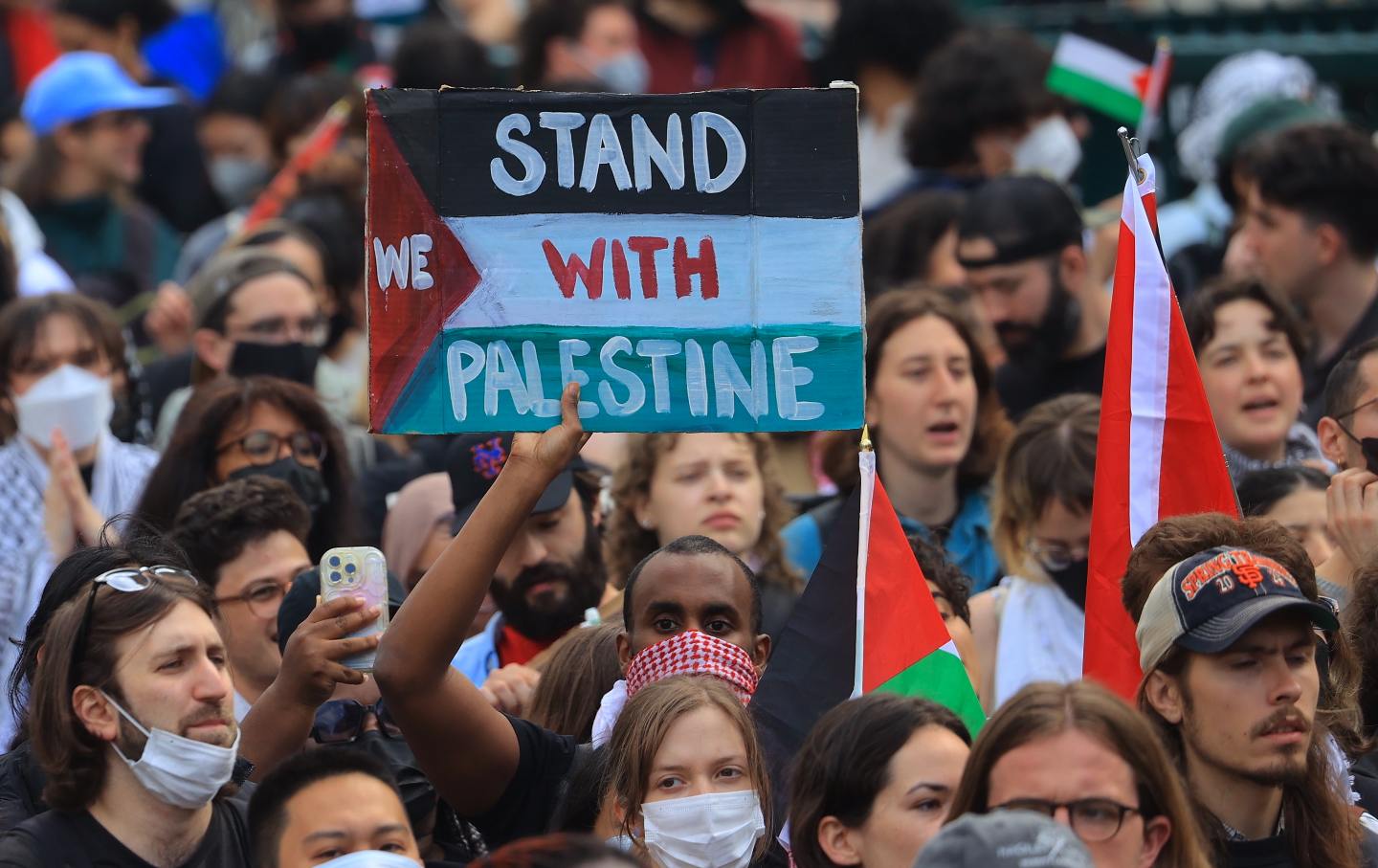
Cornell Championed “Free Expression.” Then It Rolled Out Protest Restrictions. Cornell Championed “Free Expression.” Then It Rolled Out Protest Restrictions.
The university’s overhauled expressive activity policy has been criticized by both pro-Palestine advocates and student and faculty governing bodies.
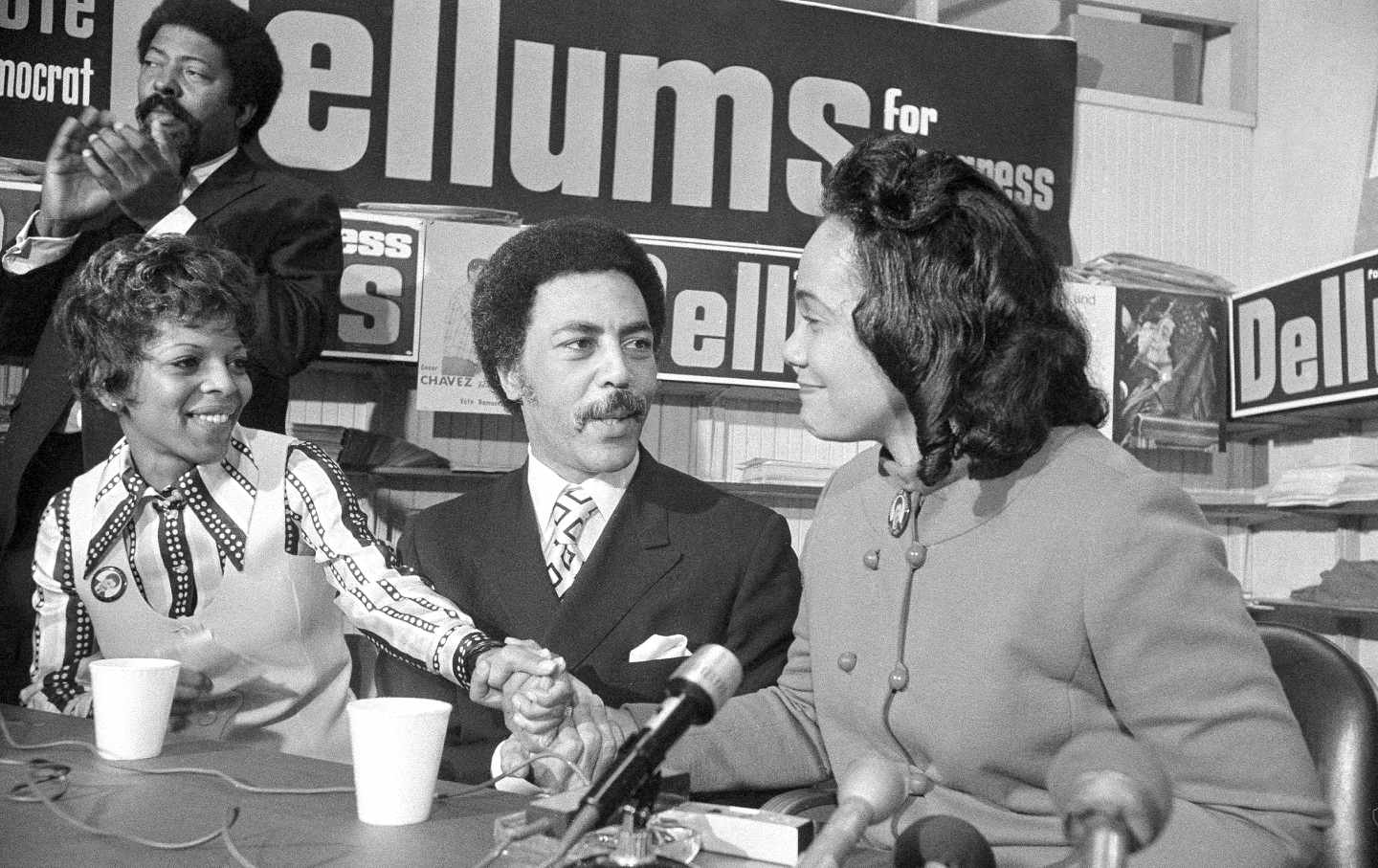
What the Movement for Palestine Can Learn From the Fight Against Apartheid What the Movement for Palestine Can Learn From the Fight Against Apartheid
The successful push to change US policy toward South Africa provides a useful blueprint for our current moment.
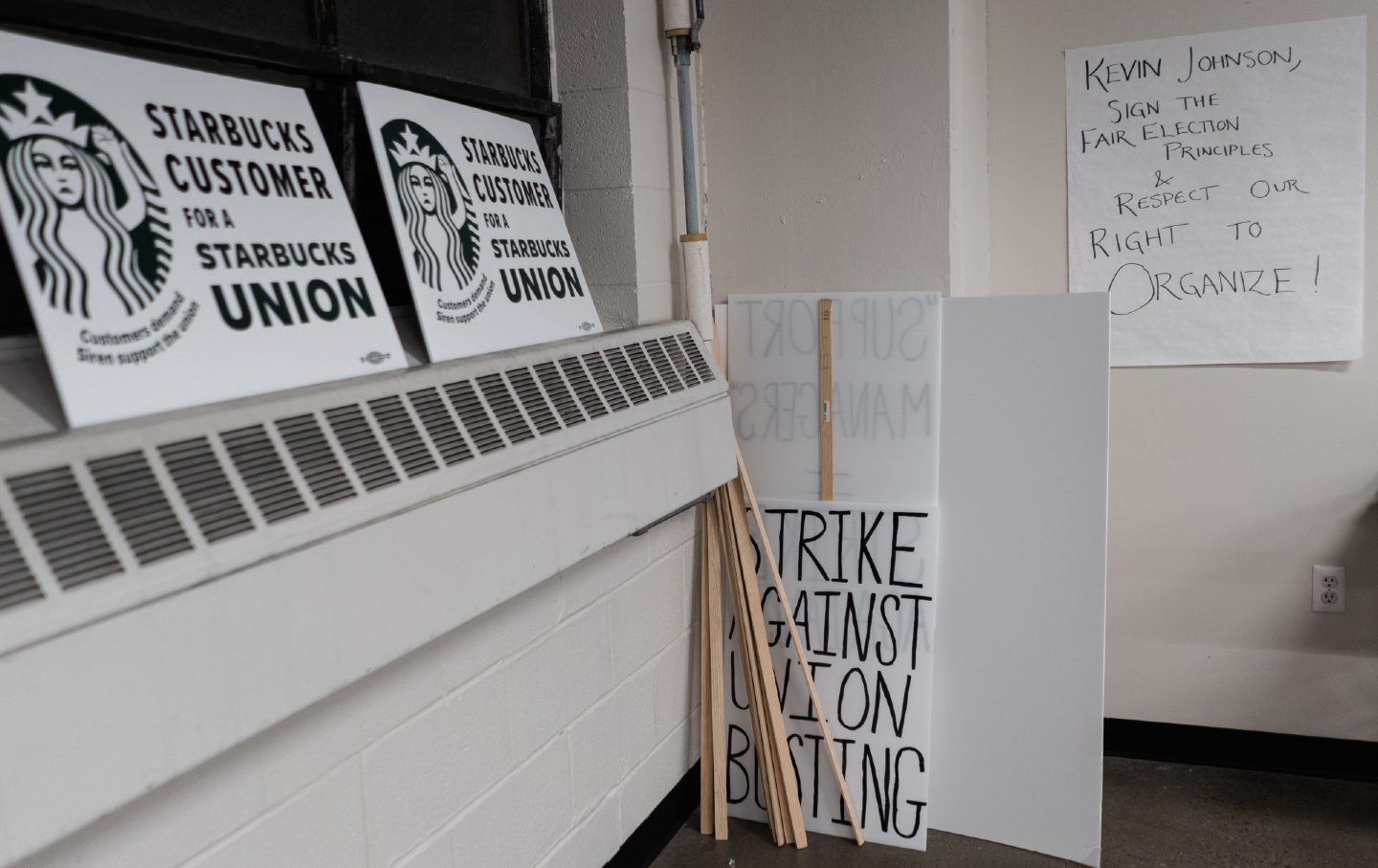
A Faster Path to Collective Bargaining: Majority Sign-Up A Faster Path to Collective Bargaining: Majority Sign-Up
Though approval of unions is at historically high levels, membership remains low. One way to change that is to make it easier for workers to form a union—and to start bargaining.
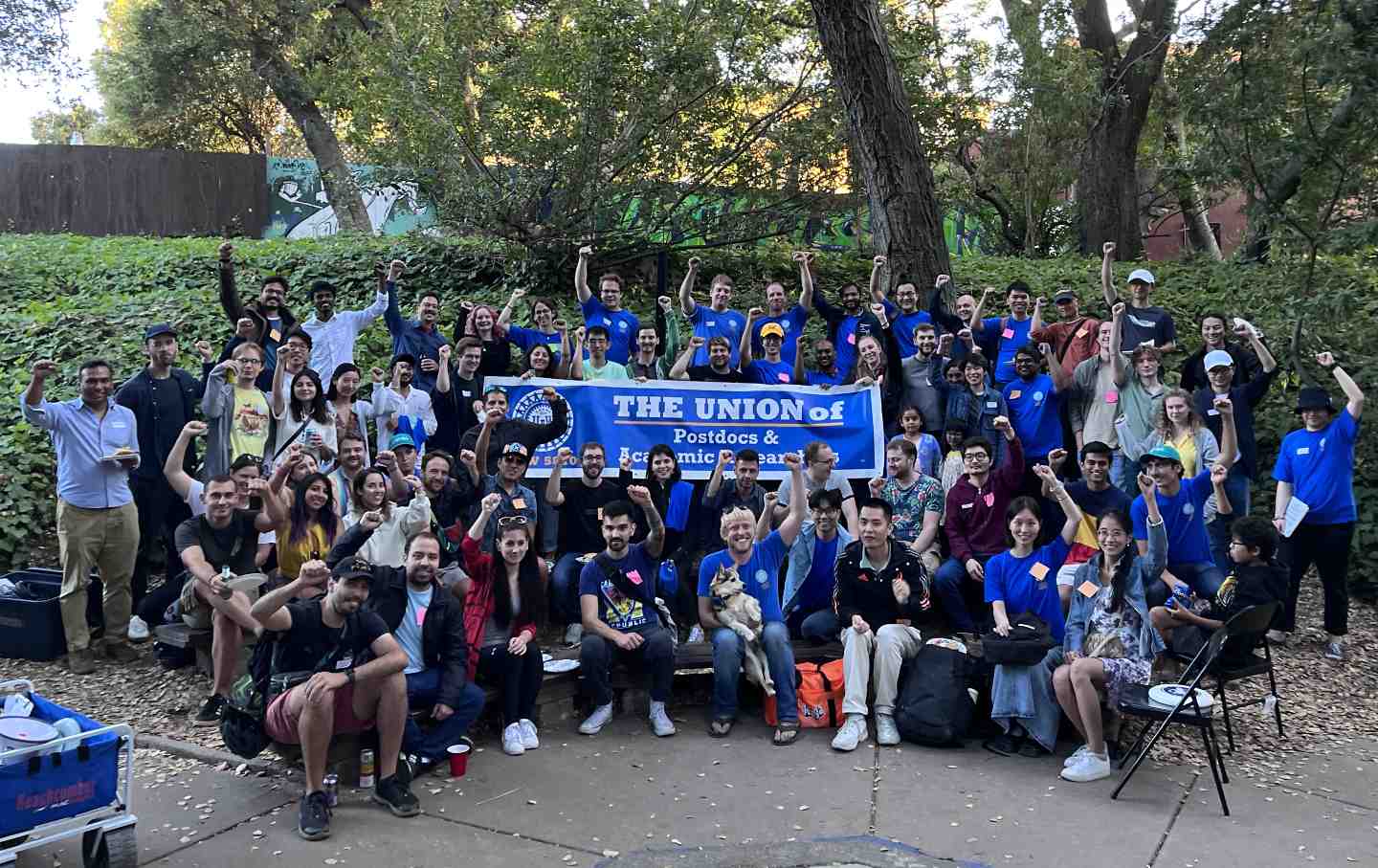
Grad Students Are Unionizing in Droves. Can Postdocs Lead the Next Wave? Grad Students Are Unionizing in Droves. Can Postdocs Lead the Next Wave?
Postdoctoral fellows are vital to universities—running labs, training students, and writing grants—while being overworked and lacking adequate job protections.

The Call Is Out for Mass, Simultaneous Strikes in 4 Years The Call Is Out for Mass, Simultaneous Strikes in 4 Years
These labor leaders are organizing for 2028. Cooperation across unions and sectors—if carried out on a large scale—would be unprecedented in the 21st-century United States.
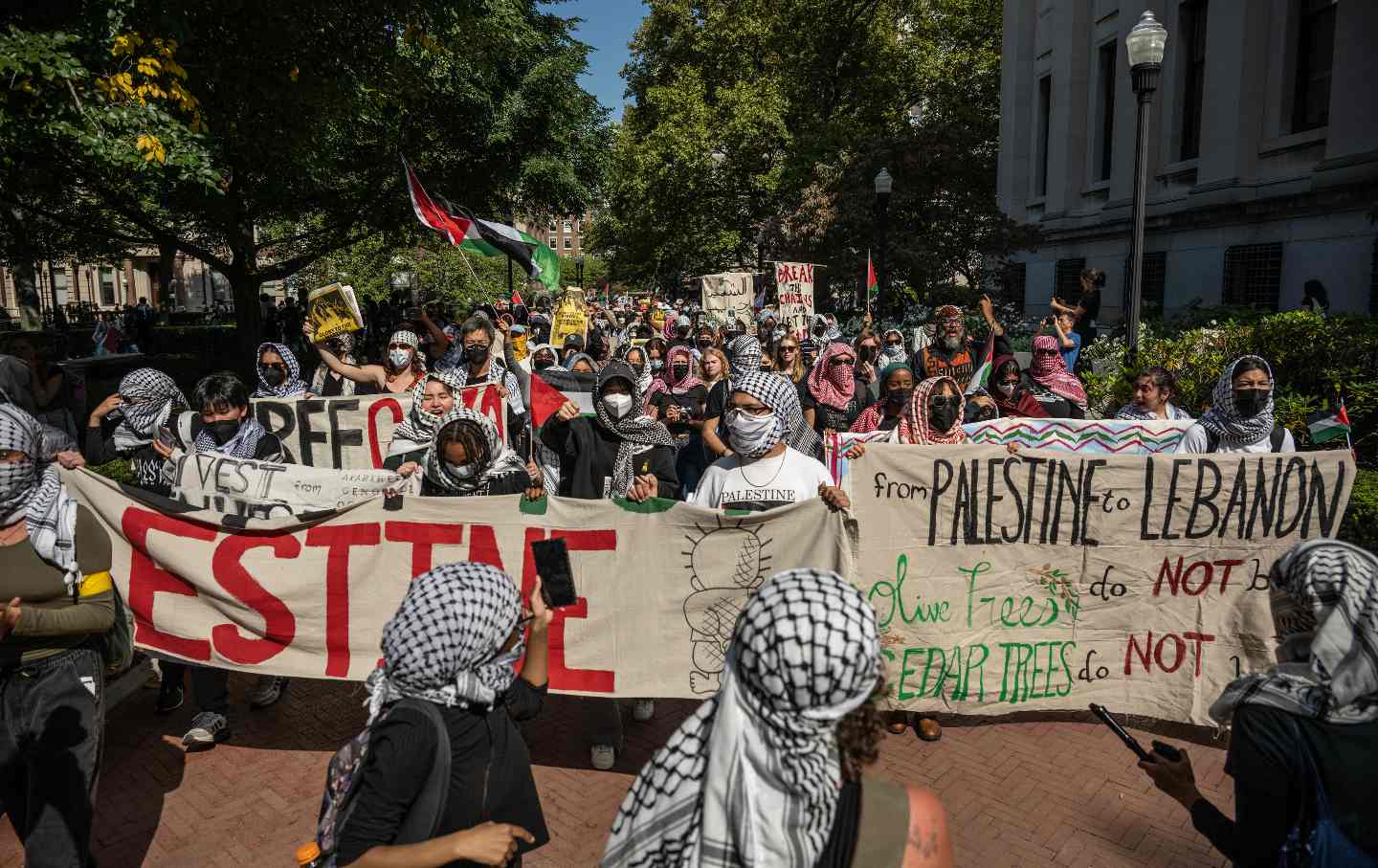
What’s Next for the Pro-Palestine Student Movement? What’s Next for the Pro-Palestine Student Movement?
“We are not just going to let campus life start as normal."


